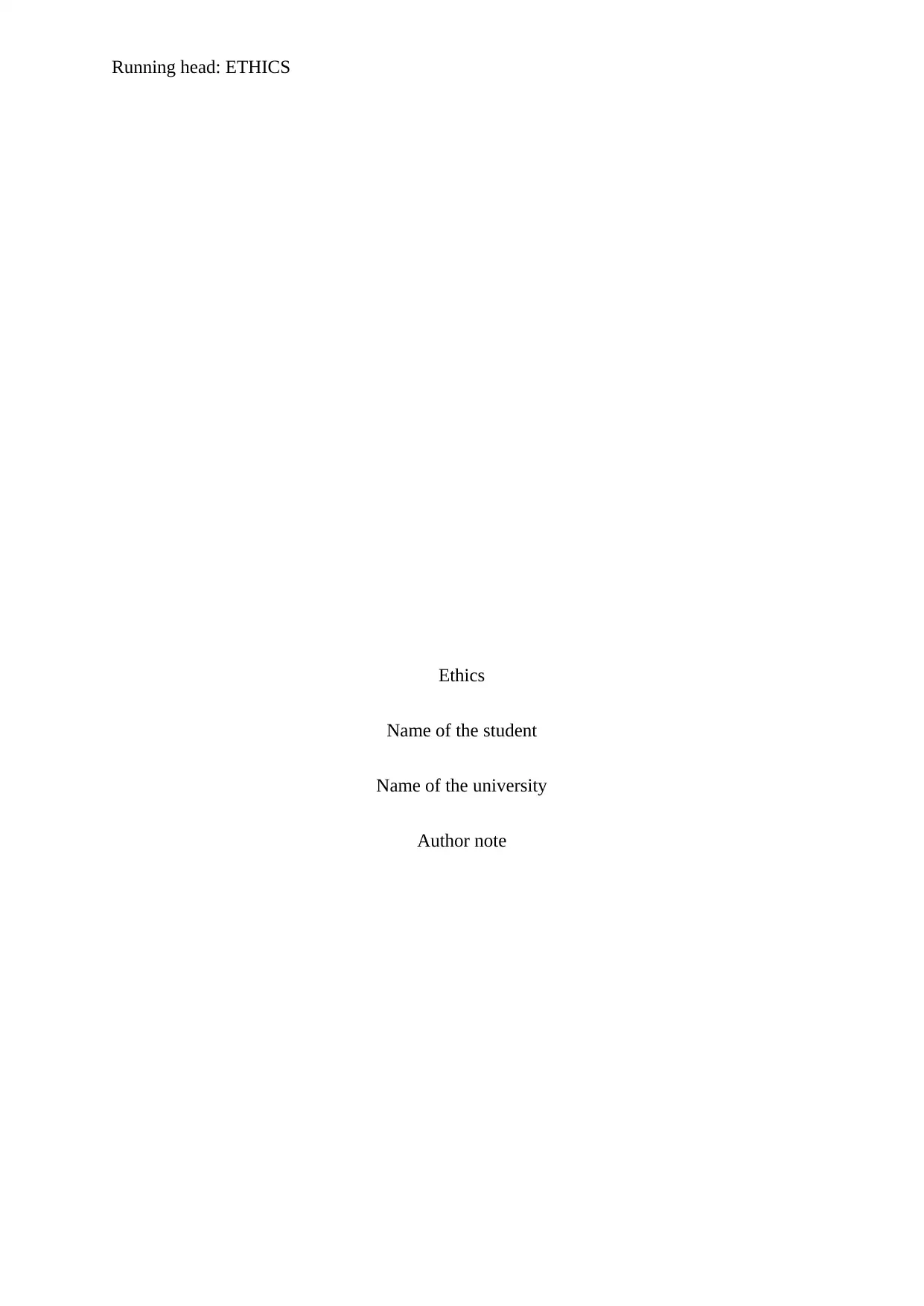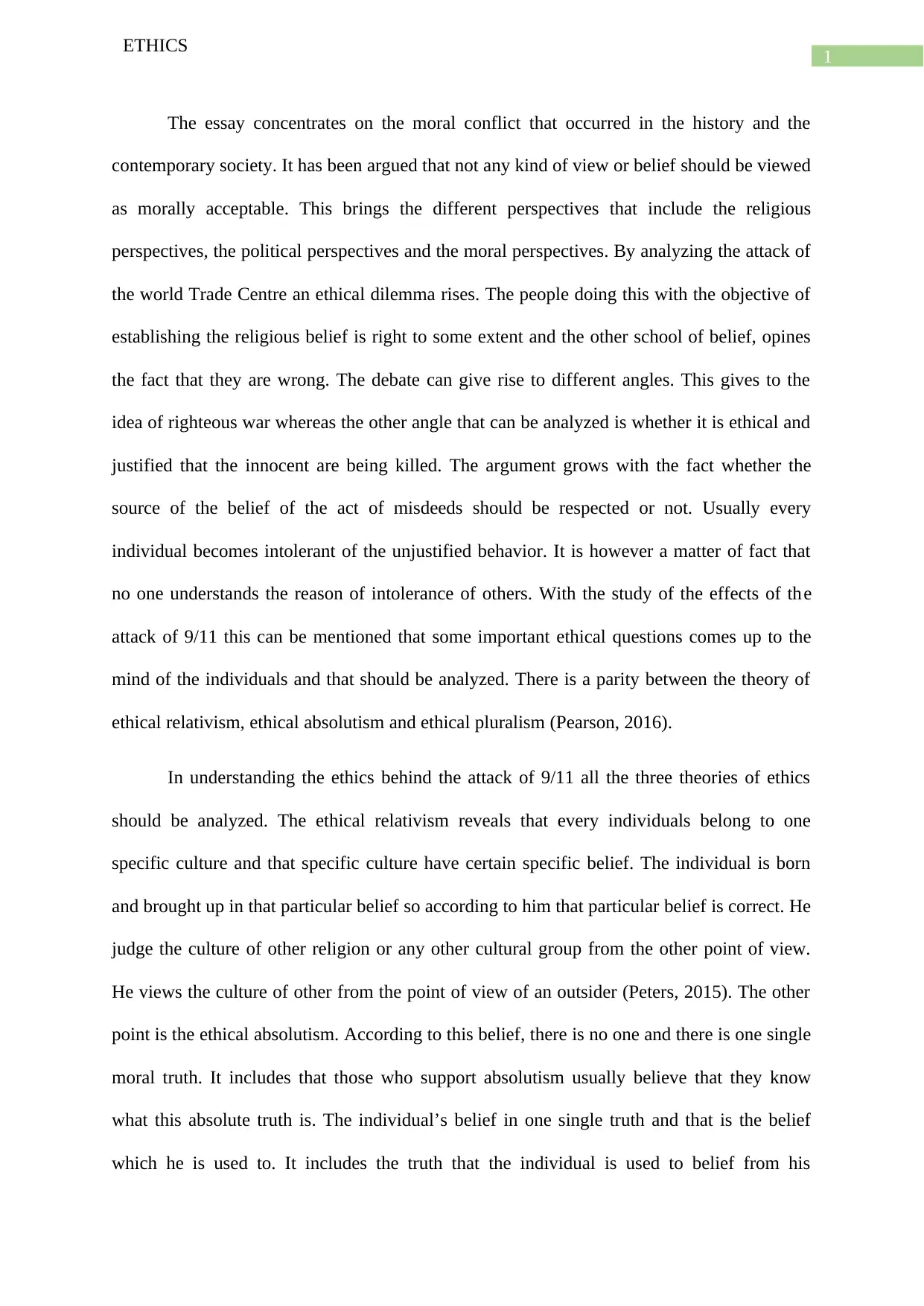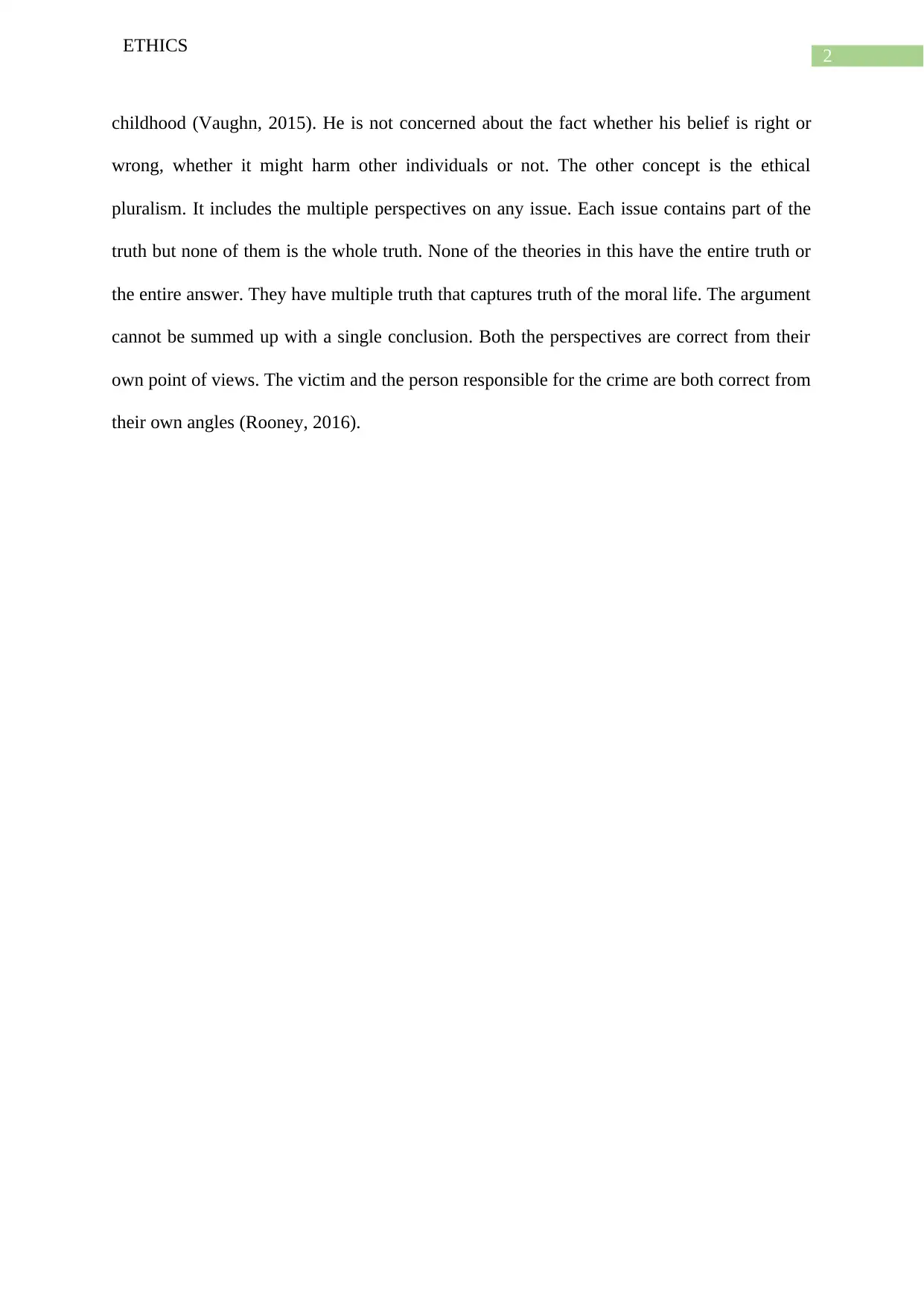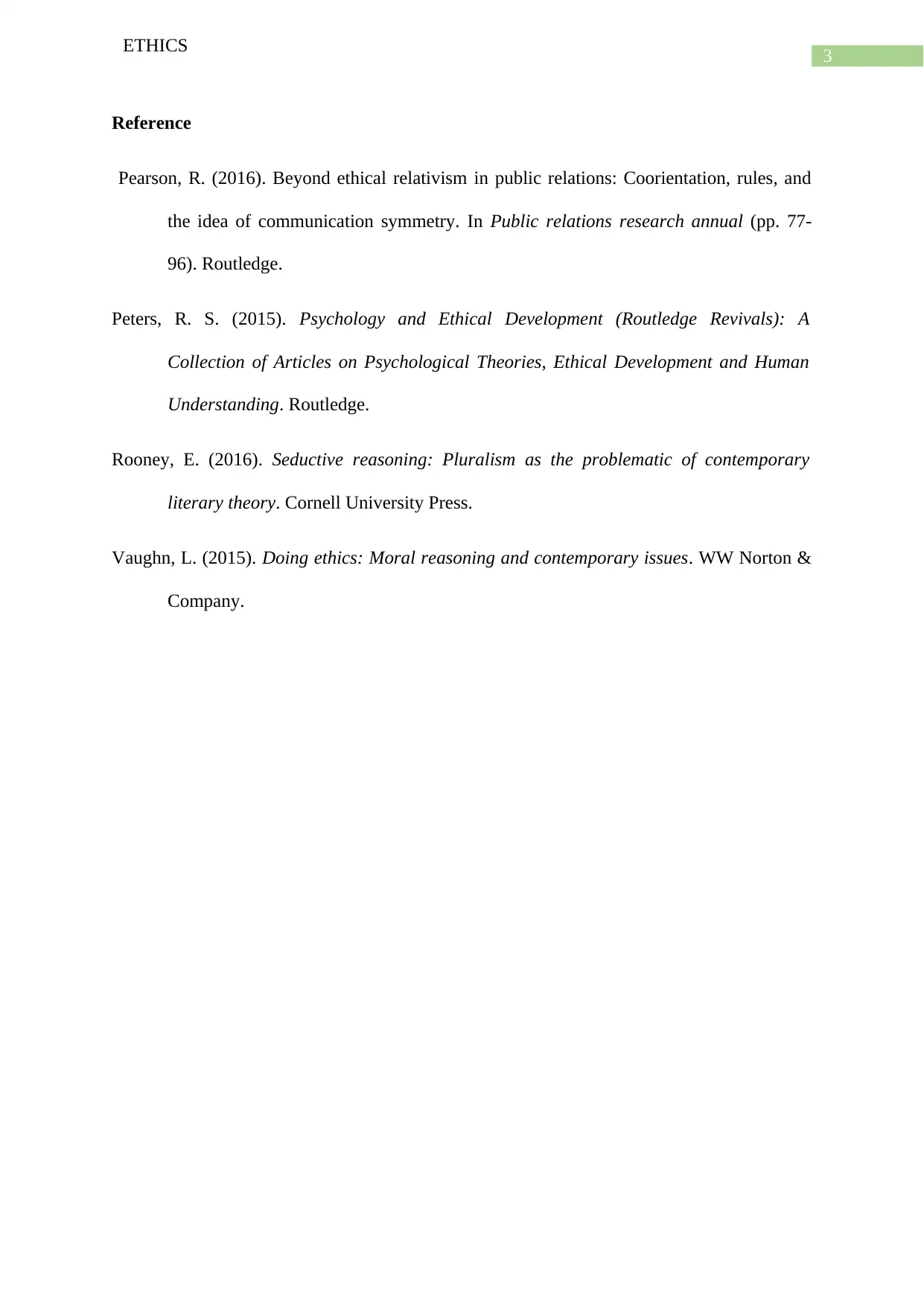Analyzing Ethics: Moral Relativism, Absolutism & 9/11 Attack Ethics
VerifiedAdded on 2023/06/14
|4
|698
|108
Essay
AI Summary
This essay delves into the complexities of moral conflicts in history and contemporary society, questioning the universal acceptability of diverse views and beliefs. It analyzes the ethical dilemma presented by the 9/11 attack, exploring religious, political, and moral perspectives. The essay examines the concepts of righteous war versus the ethical justification of killing innocent people, and whether the source of beliefs justifying misdeeds should be respected. It further explores ethical relativism, absolutism, and pluralism to understand the multifaceted ethics behind the 9/11 attack, highlighting that each perspective holds a part of the truth, with no single theory providing a complete answer. Desklib offers a variety of resources, including past papers and solved assignments, to aid students in their studies.
1 out of 4










![[object Object]](/_next/static/media/star-bottom.7253800d.svg)